Welcome to our in-depth exploration of the fascinating relationship between the Church and culture in America. In this series, we will delve into how the church community navigates the ever-evolving cultural landscape and how culture, in turn, influences the church. From addressing social issues to embracing contemporary norms, we seek to understand the intricate dynamics at play and uncover the impact of this intersection.
Key Takeaways:
- The intersection of Church and culture is a complex and ever-evolving relationship.
- The church community plays a vital role in shaping and being shaped by the surrounding culture.
- Cultural influences can impact the church’s teachings, practices, and engagement with society.
- Understanding the dynamics of this intersection can provide valuable insights into the role of the church in modern American society.
- Stay tuned for further exploration of the Church’s engagement with culture and the impact it has on the lives of individuals and communities.
Embracing the Calling to be a Light in the World
As Christians, we are called to be a light in the world and to openly live out our faith. This means embracing the societal norms and contemporary culture around us as opportunities to engage with and influence the world for Christ. It is not enough for us to simply exist within the walls of our church community; we must actively seek to engage with the culture around us.
In our engagement with culture, it is important to remember that our primary goal is to win people to Christ, not to align people with a particular political party or ideology. Our aim should be to share the Gospel in a way that others can understand and relate to, meeting them where they are in their own cultural context. By doing so, we can effectively demonstrate the love and truth of Christ.
Churches have a unique opportunity to be a positive influence in contemporary culture. By taking an active role in engaging with societal norms and contemporary issues, we can address the needs and concerns of our communities in a way that reflects the teachings of Jesus. This may involve addressing topics such as social justice, environmental stewardship, mental health, and more. By actively engaging with culture, we can demonstrate the relevance and transformative power of the Gospel.
Table: Examples of Church Engagement with Culture
| Issue | Church Engagement |
|---|---|
| Homelessness | Providing shelter and resources for the homeless population |
| Racial Reconciliation | Organizing events and discussions to promote dialogue and understanding |
| Mental Health | Offering support groups and resources for individuals struggling with mental health issues |
| Environmental Stewardship | Implementing sustainable practices within the church and advocating for responsible environmental policies |
By embracing our calling to be a light in the world and actively engaging with culture, we can have a positive impact on society. Let us strive to use our faith to address the needs of our communities, being a beacon of hope, love, and truth in a world that is in desperate need of it.
Overcoming Fear and Opposition in Standing for Truth
When it comes to the intersection of church and culture, one of the greatest challenges Christians face is overcoming fear and opposition. In today’s society, where social trends often contradict biblical teachings, it can be intimidating to openly stand for truth. Many Christians are afraid to speak out due to the fear of offense or backlash, which can lead to the compromising of their beliefs.
However, Jesus Himself warned His followers that there would be a cost to following Him. In Matthew 10:22, Jesus said, “You will be hated by everyone because of me, but the one who stands firm to the end will be saved.” As Christians, we must remember that our ultimate allegiance is to God and His truth. We are called to be fearless in speaking and standing for God’s truth, even in the face of opposition.
It is important to recognize that as followers of Christ, our battle is not against flesh and blood, but against the spiritual forces of evil (Ephesians 6:12). The devil seeks to silence the voices of truth and sow seeds of doubt and division. But we can find strength in knowing that God is on our side. As we equip ourselves with the truth found in His Word and rely on the power of prayer, we can overcome fear and opposition, knowing that God’s truth ultimately prevails.
Standing for truth in a culture that often opposes it requires courage, boldness, and unwavering faith. As Christians, our mission is not to conform to the values of the world, but to be a light in the darkness and bring about cultural transformation. By staying grounded in our convictions, staying connected to a supportive church community, and continually seeking God’s guidance, we can navigate the challenges at the intersection of church and culture and make a positive impact on society.

The Impact of the Church on Society
| Church Impact on Society | |
|---|---|
| 1 | Providing Moral and Ethical Guidance |
| 2 | Addressing Social Issues |
| 3 | Supporting and Caring for the Vulnerable |
| 4 | Building Strong Communities |
Table: The Impact of the Church on Society
The church has a significant impact on society, as it serves as a source of moral and ethical guidance. Through the teachings of Jesus Christ, the church promotes values such as love, forgiveness, and compassion, which are essential for a healthy and harmonious society.
In addition to providing moral guidance, the church also plays a crucial role in addressing social issues. It often stands up for justice, advocates for the marginalized, and works towards positive societal change. The church’s involvement in social issues helps to create awareness, foster dialogue, and bring about much-needed transformation.
Furthermore, the church is known for its commitment to supporting and caring for the vulnerable. Through various outreach programs, charitable initiatives, and community service, the church provides assistance and resources to those in need. This compassionate approach fosters a sense of solidarity and unity within society.
Lastly, the church plays a vital role in building strong communities. It provides a space for fellowship, worship, and connection, bringing people together across different backgrounds and fostering a sense of belonging. This sense of community strengthens social bonds and contributes to the overall well-being of individuals and society as a whole.
Equipping Yourself for the Spiritual Battle
As Christians navigate the intersection of church and culture, they must recognize the influence of politics and culture on their faith. It is crucial to prepare oneself for the spiritual battle that arises from these influences. Ephesians 6:10-18 provides guidance on how Christians can equip themselves with the armor of God to stand against the devil’s schemes.
One key aspect of preparation is understanding the political influence on the church. Political ideologies can sometimes shape societal norms and values, which can challenge biblical principles. Christians must discern between political ideologies and biblical truths, ensuring that their faith remains the foundation for their beliefs and actions.
“Put on the full armor of God, so that you can take your stand against the devil’s schemes.”
Additionally, Christians need to be aware of the influence of culture on their faith. Contemporary culture often promotes values and behaviors that may contradict biblical teachings. By staying rooted in the Word of God and seeking discernment through prayer, Christians can navigate cultural pressures and maintain their spiritual integrity.
The Armor of God
Ephesians 6:10-18 describes the full armor of God that Christians can utilize in the spiritual battle. This armor includes:
- The belt of truth
- The breastplate of righteousness
- The shoes of the gospel of peace
- The shield of faith
- The helmet of salvation
- The sword of the Spirit, which is the Word of God
Each piece of armor represents a different aspect of the Christian’s faith and is vital for standing firm against the influence of politics and culture. Equipped with the armor of God, Christians can confidently engage with the world while remaining true to their biblical convictions.
| Armor | Representation |
|---|---|
| The belt of truth | Represents living a life of truth and honesty, firmly rooted in God’s Word. |
| The breastplate of righteousness | Symbolizes living a life of righteousness and integrity, guarding the heart against sinful influences. |
| The shoes of the gospel of peace | Signifies readiness and willingness to share the peace and good news of the Gospel with others. |
| The shield of faith | Represents unwavering trust and belief in God’s promises and protection. |
| The helmet of salvation | Symbolizes the assurance of salvation and the protection of the mind against doubts and temptations. |
| The sword of the Spirit, which is the Word of God | Signifies the power and authority of God’s Word as a weapon against spiritual attacks and deception. |
By equipping themselves with the armor of God and understanding the influence of politics and culture, Christians can effectively navigate the intersection of church and society. This preparation enables them to stand firm in their faith, shine the light of Christ, and impact the world around them.
Speaking Truth with Boldness in a Confusing World
In a world filled with confusion and conflicting ideologies, it is essential for Christians to speak truth with boldness. As believers, we have a responsibility to redeem societal and political structures by using the Bible as our guide to address the pressing issues of our time.
By grounding ourselves in biblical principles, we can navigate the complexities of the world and offer a clear and compelling voice in the midst of confusion. The Bible provides wisdom and insight on topics such as morality, justice, and compassion, equipping us to engage in conversations about societal issues with love and conviction.
“The truth will set you free,” as Jesus said in John 8:32. This truth should not be hidden or watered down, but boldly proclaimed. We must be courageous in shedding light on the darkness that permeates our culture, challenging cultural norms that contradict God’s Word, and inspiring transformation in our society.
“Let your light shine before others, that they may see your good deeds and glorify your Father in heaven.” – Matthew 5:16
Biblical Principles for Addressing Societal Issues:
- Love and compassion: Showing love and compassion to all individuals, regardless of their background or beliefs.
- Justice and righteousness: Advocating for justice, fairness, and righteousness in our communities.
- Morality and integrity: Upholding biblical standards of morality and displaying personal integrity in all areas of life.
- Forgiveness and reconciliation: Extending forgiveness and working towards reconciliation, even in the face of conflict and division.
| Biblical Principle | Application |
|---|---|
| Love and compassion | Engaging in acts of service and compassion, reaching out to those in need, and promoting inclusivity and respect for all people. |
| Justice and righteousness | Advocating for fair and just policies, speaking out against discrimination and oppression, and working towards a society that values equality and dignity for all. |
| Morality and integrity | Living out biblical values in our own lives, being a role model in our communities, and standing firm in our convictions. |
| Forgiveness and reconciliation | Seeking forgiveness and extending grace, working towards healing and unity in our relationships and communities. |
As we navigate the intersection of church and culture, let us not shy away from speaking truth with boldness. By using the Bible to address societal issues, we can contribute to the transformation of our culture and bring about God’s kingdom here on earth.
Praying for the Lost and Misguided
As Christians, it is our duty to pray for both unbelievers and believers who may have strayed from the path of righteousness. Our prayers have the power to turn hearts back to God and bring about transformation in the lives of those who are lost and misguided. Through prayer, we can intercede on behalf of others and ask God to work in their lives, drawing them closer to Him.
When we pray for unbelievers, we are asking God to open their hearts and minds to the truth of the Gospel. We can pray for opportunities to share our faith with them and for the Holy Spirit to convict them of their need for a Savior. It is important to remember that our true enemy is not the person themselves, but the spiritual forces that hold them captive. Therefore, we should pray for God’s intervention and deliverance in their lives.
Additionally, we must not neglect to pray for believers who may have become entangled in worldly desires or false teachings. Our prayers can serve as a lifeline, reminding them of the truth and guiding them back to the loving arms of God. We can pray for their spiritual growth, for renewed strength and conviction, and for the restoration of their faith.
“The earnest prayer of a righteous person has great power and produces wonderful results.” – James 5:16
Through our prayers, we can become a catalyst for change in the lives of those around us. Let us commit to praying fervently for the lost and misguided, trusting in God’s faithfulness to answer our prayers and bring about His perfect will.

The Importance of Black Churches in African American Communities
In the African American community, Black churches play a crucial role in meeting the spiritual and holistic needs of their congregations. These churches serve as centers of worship, community, and empowerment, providing support and guidance to individuals and families. They have historically been significant institutions, serving as a safe haven during times of racial discrimination and inequality.
Black churches often focus on social justice, community support, and addressing racial pride and inequality. They provide a platform for African American leadership to emerge and make a positive impact on their communities. Through their ministries and outreach programs, these churches strive to address the unique challenges faced by African Americans and promote a sense of unity, empowerment, and healing.
Key Functions of Houses of Worship
Black churches serve multiple key functions within African American communities, such as:
- Providing spiritual guidance: Black churches offer a space for worship, prayer, and spiritual growth, nurturing the faith of their congregants.
- Promoting social justice: Black churches actively engage in advocating for social justice and fighting against racial inequality, both within and outside their communities.
- Supporting community development: These churches often provide resources and programs aimed at addressing various social issues, including education, healthcare, and economic empowerment.
- Fostering cultural identity: Black churches celebrate and preserve African American culture and traditions, serving as important centers for cultural expression and pride.
The importance of Black churches in African American communities cannot be overstated. They play an integral role in uplifting and supporting individuals and families, while also working towards creating a more just and equitable society.
| Function | Description |
|---|---|
| Providing spiritual guidance | Black churches offer a space for worship, prayer, and spiritual growth, nurturing the faith of their congregants. |
| Promoting social justice | Black churches actively engage in advocating for social justice and fighting against racial inequality, both within and outside their communities. |
| Supporting community development | These churches often provide resources and programs aimed at addressing various social issues, including education, healthcare, and economic empowerment. |
| Fostering cultural identity | Black churches celebrate and preserve African American culture and traditions, serving as important centers for cultural expression and pride. |

Black churches serve as vital institutions within African American communities, providing spiritual guidance, promoting social justice, supporting community development, and fostering cultural identity. These houses of worship play a fundamental role in addressing the unique challenges faced by African Americans and uplifting their communities.
The Complexities of the Black Church in America
When examining the role of the Black church in America, it is essential to recognize that the Black church is not a monolith. Beliefs and practices can differ among Black Americans based on factors such as immigrant status, age, and religious affiliation. Despite this diversity, a significant percentage of Black Americans prioritize addressing racism and helping the needy as key functions of their houses of worship.
The Black church holds a unique place in the religious life of African Americans. It has historically been a source of strength, resilience, and empowerment for the Black community. Black churches have played a pivotal role in nurturing faith, providing social support, advocating for justice, and fostering a sense of belonging. These institutions have often served as the backbone of African American communities, addressing not only spiritual needs but also providing social services, education, and opportunities for economic advancement.
Furthermore, faith among Black Americans has served as a guiding force in navigating the challenges of systemic racism, inequality, and social injustice. The Black church has been a catalyst for organizing and mobilizing communities to effect positive change, with leaders and congregants actively engaging in civil rights movements and advocating for equal rights and opportunities.
The Role of the Black Church in Addressing Racial Inequality
The Black church has consistently played a pivotal role in addressing racial inequality. Its teachings emphasize the importance of social justice, equality, and the inherent worth and dignity of every individual. Black Protestant churches, in particular, have continued to address these issues through sermons, community engagement, and advocacy efforts.
| Key Functions of the Black Church | Examples |
|---|---|
| Promoting Social Justice | Engaging in voter registration drives, advocating for criminal justice reform, and addressing systemic racism |
| Providing Community Support | Offering counseling services, hosting community events, and providing resources for those in need |
| Addressing Racial Pride and Inequality | Empowering Black individuals to embrace their heritage, celebrate their achievements, and challenge racial stereotypes |
The Black church continues to be a significant force in addressing racial inequality and advocating for social justice. Through its teachings and community involvement, it seeks to create a more just and equitable society for all individuals, regardless of race or ethnicity.

“The Black church remains a beacon of hope and transformation, inspiring generations to fight for justice and equality.” – Reverend Michael Johnson
The Future of the Black Church and Social Justice
The Black church has historically played a vital role in addressing social justice issues within African American communities, and this role is likely to continue in the future. Racial inequality remains a significant challenge in the United States, and Black churches are uniquely positioned to address this issue through their teachings, community engagement, and advocacy efforts.
One area where Black churches can make a considerable impact is in addressing voting and criminal justice reform. These issues disproportionately affect Black individuals and communities, and the Black church can play a crucial role in educating its members about their rights and mobilizing them to vote. Additionally, Black churches can advocate for fair and equitable criminal justice practices that address systemic racism and provide support to individuals affected by the criminal justice system.
It is important to recognize that the role of Black churches in promoting social justice extends beyond addressing racial inequality. These churches have a long history of addressing various social issues, including poverty, education, healthcare disparities, and community development. Moving forward, Black churches will likely continue to play a pivotal role in advocating for equality and justice both within and beyond their congregations.

| Role of Black Churches in Social Justice | Examples |
|---|---|
| Community Engagement | Organizing community events, providing resources for those in need, partnering with local organizations |
| Advocacy | Addressing systemic issues through lobbying, promoting policy changes, and supporting grassroots movements |
| Education and Awareness | Teaching congregants about social justice issues, hosting workshops and seminars, raising awareness through sermons |
| Collaboration | Working with other churches, organizations, and communities to amplify efforts and make a collective impact |
As the racial and social landscape continues to evolve, Black churches will need to adapt their approaches to effectively address the challenges that arise. This may involve embracing new technologies and communication methods, fostering intergenerational dialogue, and cultivating partnerships with diverse groups and communities.
The future of the Black church and social justice is intertwined. By remaining committed to their mission of promoting equality, justice, and compassion, Black churches can continue to be powerful agents of change in the fight against racial inequality and the pursuit of a more just society.
Navigating the Intersection of Church and Culture Today
Living as a Christian in today’s society can often feel like navigating a spiritually foreign land. The prevailing cultural values may clash with our Christian beliefs, and it can be challenging to know how to apply a Christian worldview in a culture that embraces pagan sexuality and other conflicting beliefs.
As Christians, we are called to be in the world but not of the world. That means we must engage with culture while remaining true to our faith. It requires discernment and a willingness to stand firm in our convictions, even when they are unpopular. But how do we do that?
“Do not conform to the pattern of this world but be transformed by the renewing of your mind.” – Romans 12:2
First and foremost, we must constantly renew our minds through studying and meditating on God’s Word. It is through His Word that we gain wisdom and discernment to navigate the complexities of the culture around us. Additionally, being an active member of a church community can provide support, accountability, and guidance as we navigate the intersection of church and culture.
Ultimately, our goal should be to reflect the love and truth of Christ in all aspects of our lives. This may mean challenging the cultural norms and standing up for biblical values, even when it is uncomfortable or met with opposition. By staying grounded in our faith and seeking the guidance of the Holy Spirit, we can navigate the intersection of church and culture with grace and conviction.
Conclusion
In conclusion, as Christians, it is crucial for us to remain faithful as the people of God in the Kingdom of Christ. While the surrounding culture may change and present challenges, the truths of the Bible remain constant and reliable. We should approach our faith with courage and confidence, knowing that the ultimate victory belongs to God.
Living out our faithfulness means actively participating in the church community and engaging in prayer. By regularly attending church and being involved in the lives of fellow believers, we can find support, encouragement, and accountability. Additionally, through prayer, we invite God’s guidance, wisdom, and strength into our lives, enabling us to navigate the complexities of living in a fallen world.
As we strive to be faithful in our daily lives, it is important to recognize that our ultimate allegiance is to the Kingdom of Christ. The values and principles of this divine kingdom should shape our worldview and guide our actions. By aligning ourselves with God’s kingdom, we can effectively shine the light of God’s love and truth in a world that desperately needs it.
Let us, therefore, commit ourselves to remaining faithful as the people of God, trusting in His unfailing promises, and actively pursuing His purposes. Through our faithfulness, we can make a positive impact on the culture around us, pointing others towards the transformative power of the Kingdom of Christ.
FAQ
Why is the Bible still relevant today?
The Bible remains relevant because it is the inspired Word of God and addresses the moral decay of our time.
What is the true meaning of the separation of Church and state?
The separation of Church and state is misunderstood – it keeps the government out of the Church, not the other way around.
What is the duty of Christians in politics and culture?
Christians have a duty to use their faith to influence politics and culture according to the teachings of Jesus.
Should Christians be open about their faith?
Christians are called to be a light to the world and openly live out their faith.
What should Christians prioritize, winning people to Christ or promoting a political party?
Christians should strive to win people to Christ, not to a political party.
Why are some Christians afraid to speak out?
Many Christians are afraid to speak out due to fear of offense or backlash.
What does Jesus promise to those who follow Him?
Jesus promises that there will be a cost to following Him, but the reward is greater.
How can Christians prepare for spiritual battles?
Christians must remain fearless in speaking and standing for God’s truth, even in the face of opposition. Ephesians 6:10-18 describes the full armor of God that Christians can use to stand against the devil’s schemes.
How can Christians redeem societal and political structures?
Christians need to use the Bible to redeem the societal and political structures around them.
Who is the true enemy of Christians?
Christians need to recognize that their true enemy is the devil, not those who do not agree with them.
What role do Black churches play in African American communities?
In the African American community, Black churches play a crucial role in meeting the spiritual and holistic needs of their congregations.
Are all Black churches the same?
The Black church in America is not a monolith, as beliefs and practices can differ among Black Americans based on factors such as immigrant status, age, and religious affiliation.
How do Black Protestant churches address racial inequality and social justice issues?
Black Protestant churches often address racial inequality and social justice issues through sermons and community engagement.
What should Black congregations prioritize?
Many Black Americans believe that it is essential for Black congregations to be more racially and ethnically diverse while maintaining their unique perspective on these issues.
How should Christians navigate the tensions between their faith and cultural values?
Christians in today’s society need to navigate the tensions between their faith and the prevailing cultural values.
What should Christians do to maintain a faithful witness?
Christians must remain faithful as the people of God in the Kingdom of Christ, recognizing that the ultimate victory belongs to God. Praying and participating in the church community are key in maintaining a faithful witness in today’s world.

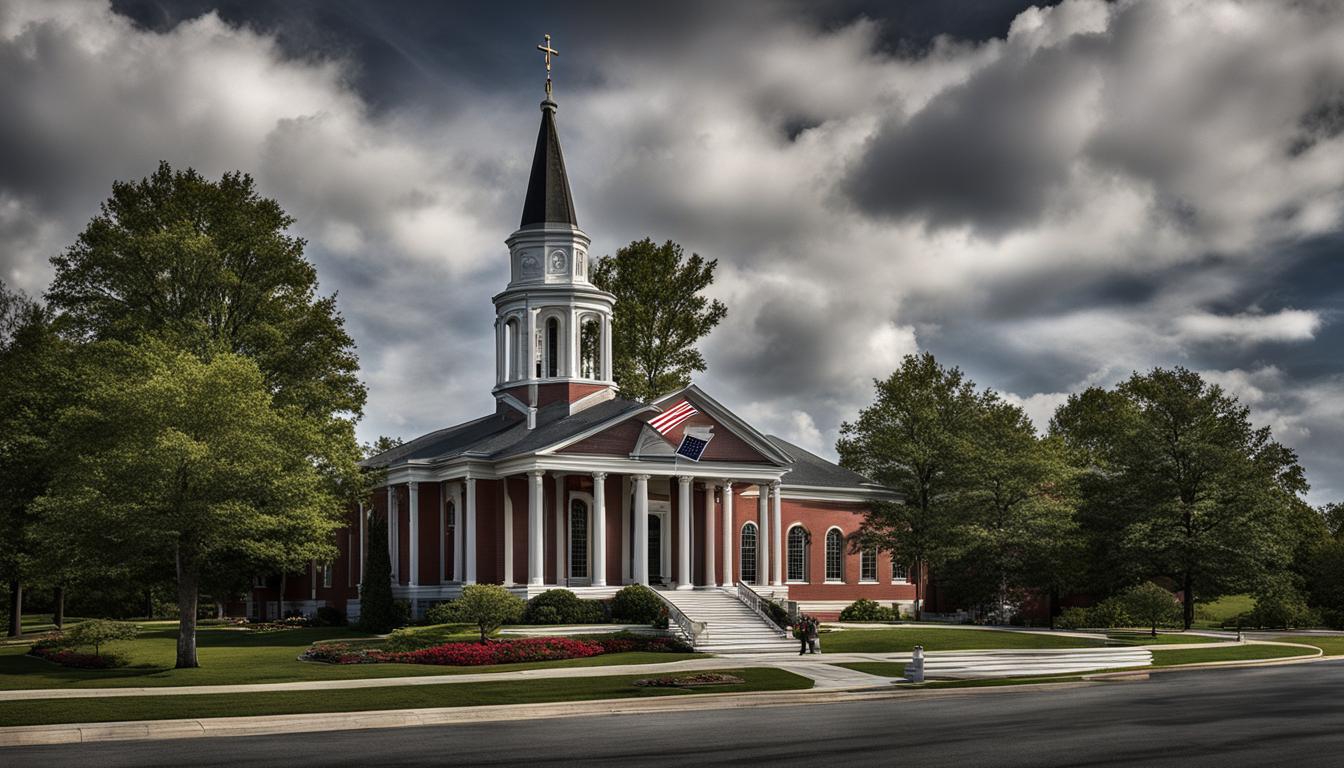

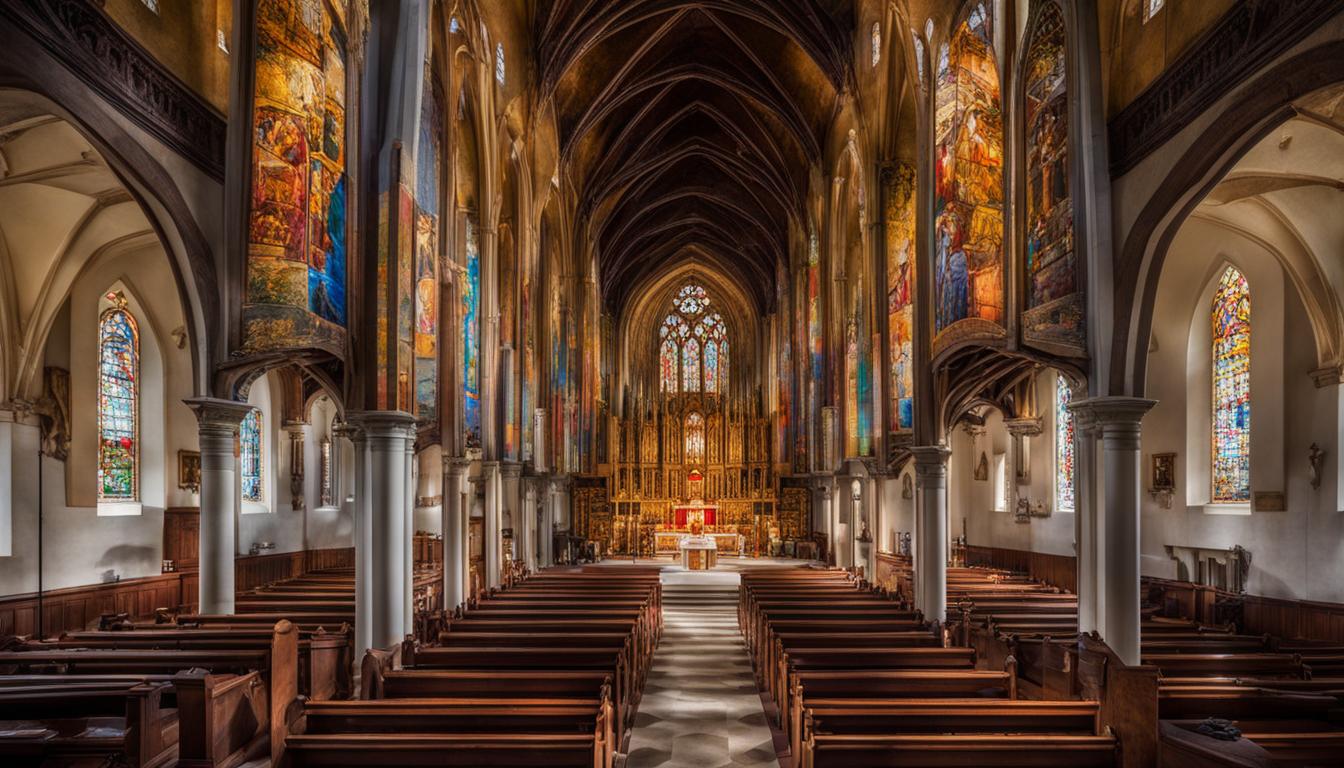

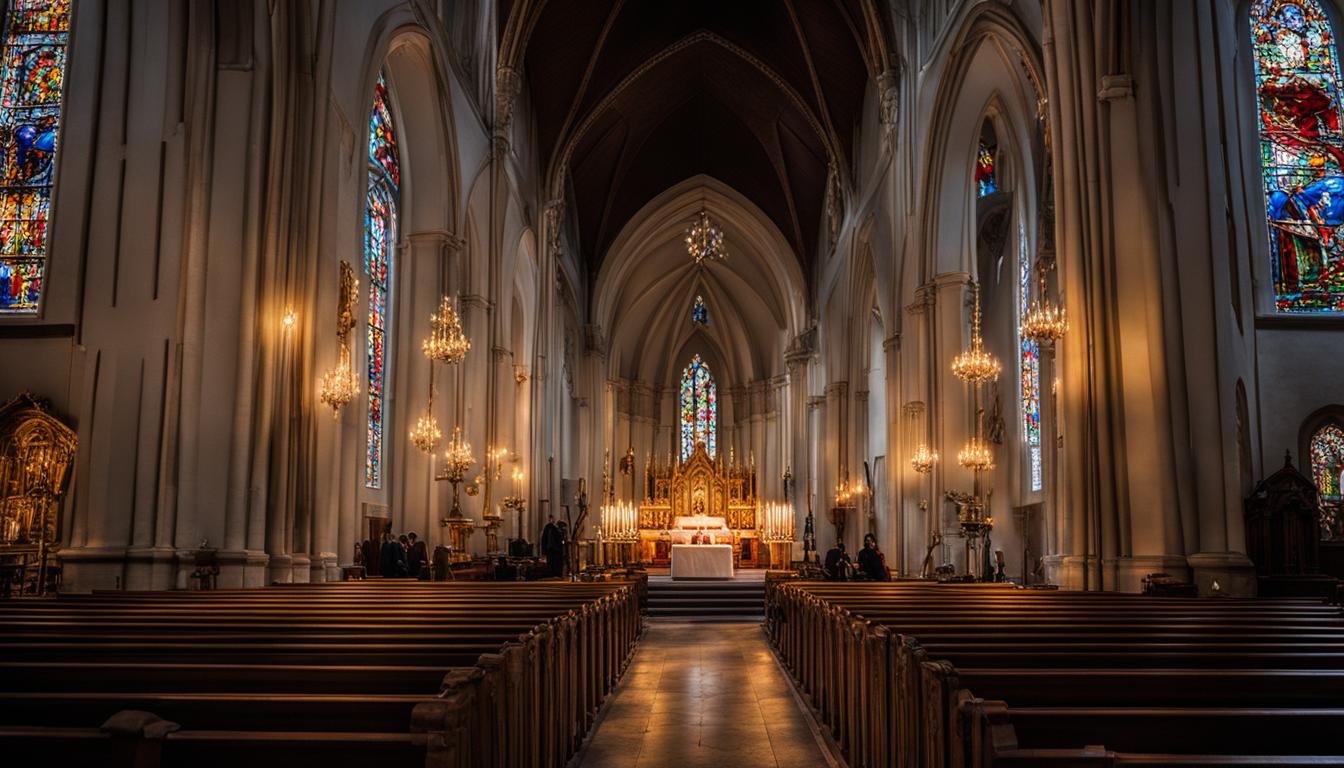



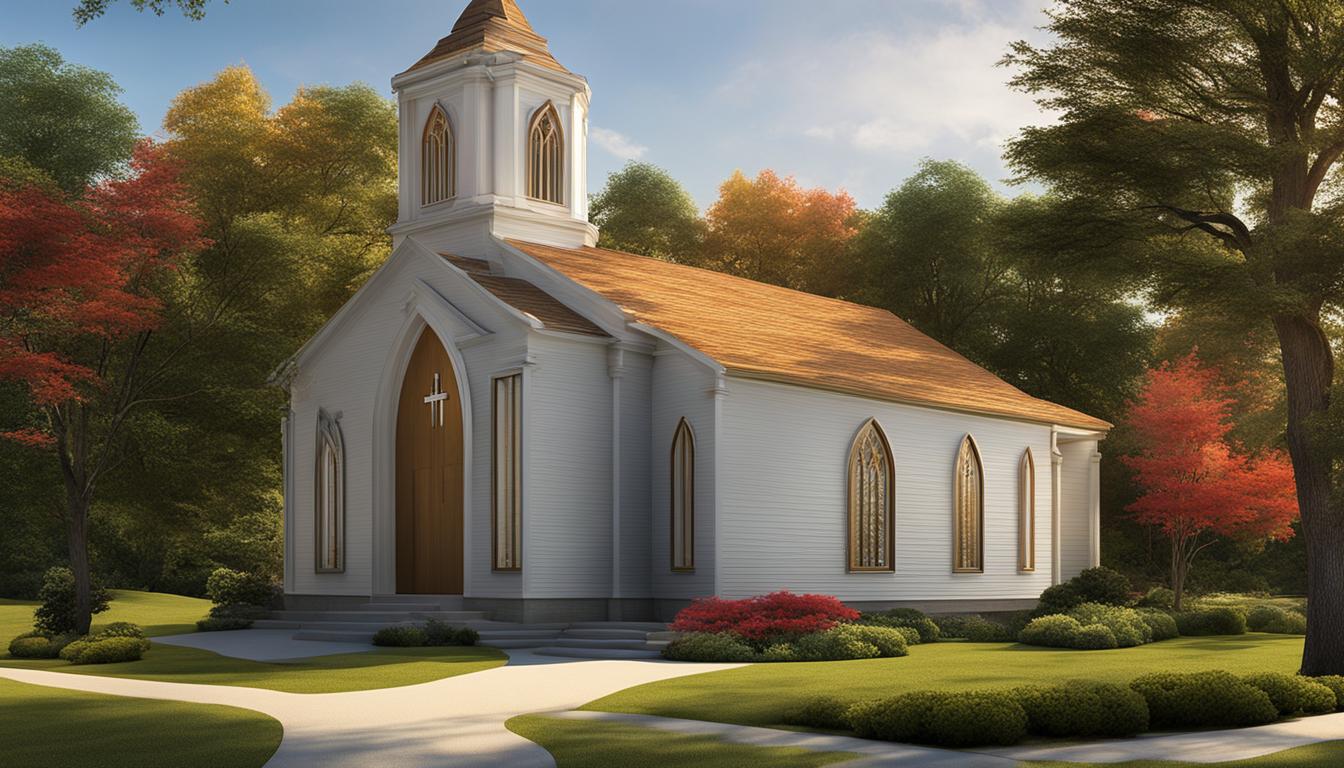
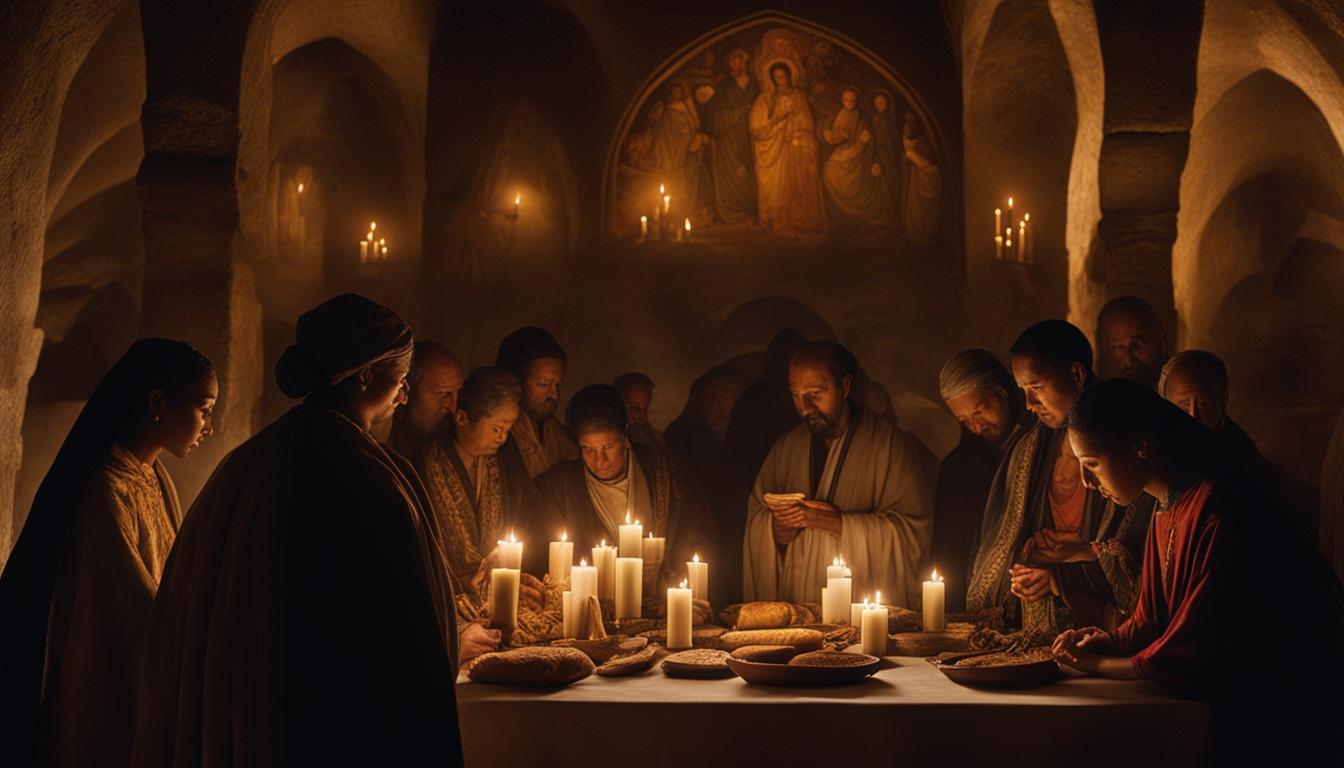




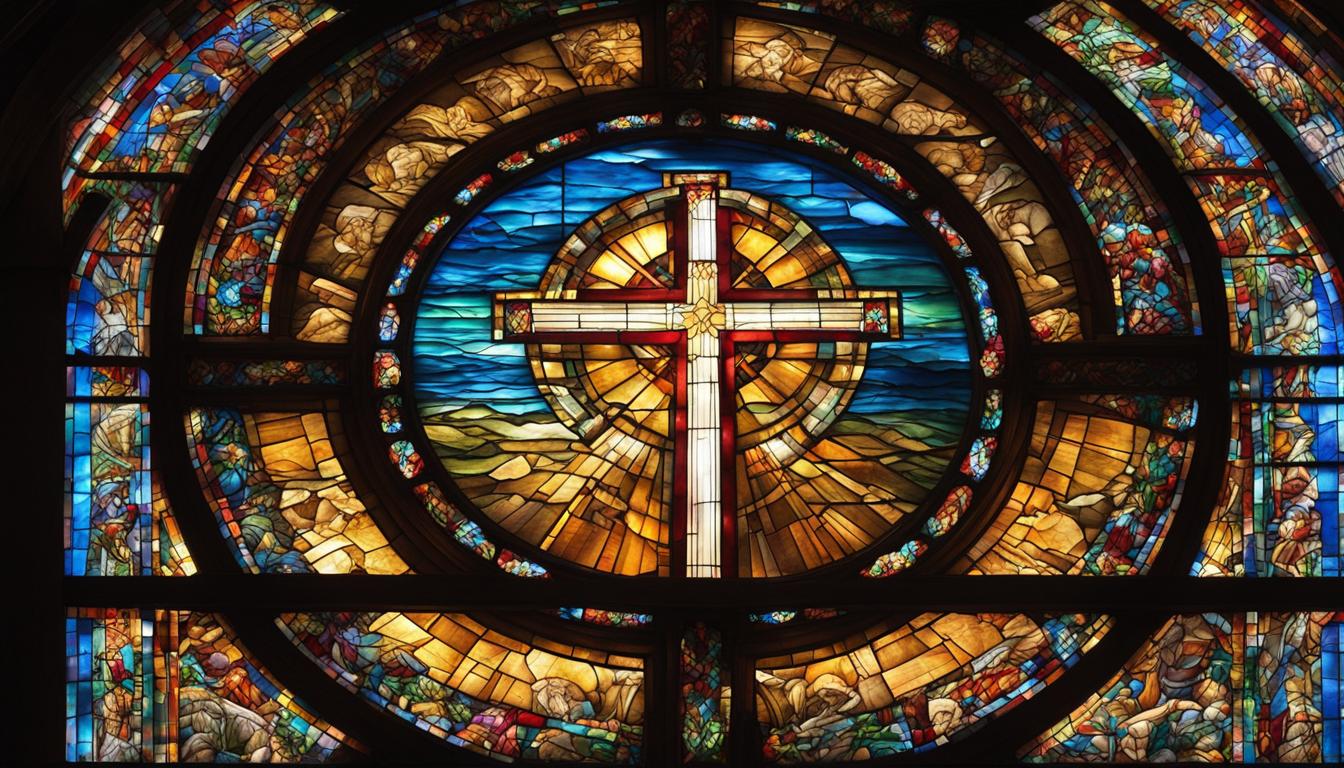

Thanks for sharing. I read many of your blog posts, cool, your blog is very good.